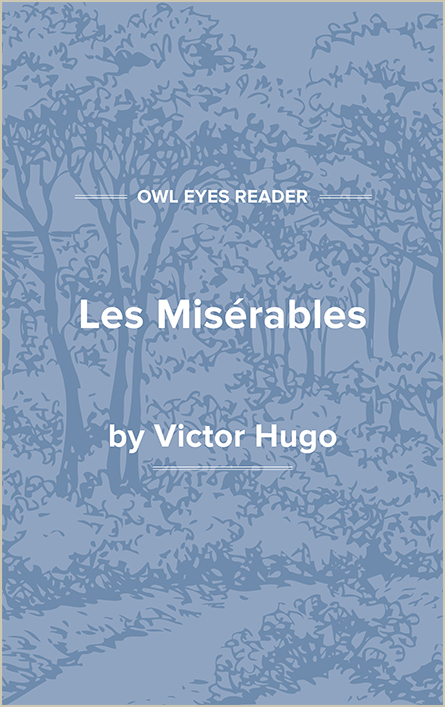Study Guide
Victor Hugo Biography
Victor-Marie Hugo was born in Besançon, France, in 1802, the third son of Joseph-Léopold-Sigisbert Hugo and Sophie-Françoise Trébuchet. His father had been born in Nancy and his mother in Nantes. They met in the Vendée, where Léopold Hugo was serving in the Napoleonic army. His military career kept the family on the move, and it was during Major Hugo’s tour of duty with the Army of the Rhine that Victor-Marie was born in Besançon.
Léopold and Sophie did not have a happy marriage, and after the birth of their third son, they were frequently separated. By 1808, Léopold had been promoted to general and was made a count in Napoleon I’s empire. During one reunion of Hugo’s parents, Victor and his brothers joined General Hugo in Spain, a land that fascinated Victor and left its mark on his poetic imagination.
In spite of their father’s desire that they should study for entrance to the École Polytechnique, Victor and his next older brother, Eugène, spent their free time writing poetry, hoping to emulate their master, François-René de Chateaubriand. In 1817, Victor earned the first official recognition of his talent by winning an honorable mention in a poetry competition sponsored by the Académie Française. Because he was only fifteen, the secretary of the Académie asked to meet him, and the press displayed an interest in the young poet.
Eugène and Victor received permission from their father to study law in 1818 and left their boarding school to live with their mother in Paris. Sophie encouraged them in their ambition to become writers and never insisted that they attend lectures or study for examinations. Victor continued to receive recognition for his poems, and the brothers founded a review, Le Conservateur littéraire, in 1819. Unfortunately, the two brothers also shared a passion for the same young woman, Adèle Foucher. In love as well as in poetry, Eugène took second place to his younger brother. Adèle and Victor were betrothed after the death of Madame Hugo, who had opposed the marriage. The wedding took place in 1822. At the wedding feast, Eugène went insane; he spent nearly all the rest of his life in institutions.
Hugo’s early publications were favorably received by the avant-garde of Romanticism, and by 1824, Hugo was a dominant personality in Charles Nodier’s Cénacle, a group of Romantic poets united in their struggle against the rules of French classicism. The year 1824 also marked the birth of Léopoldine, the Hugos’ second child and the first to survive infancy. She was always to have a special place in her father’s heart. In 1827, the Hugos had another child, Charles.
The Hugos were acquainted with many of those writers and artists who are now considered major figures in the Romantic movement, among them Alexandre Dumas, père, Alfred de Vigny, and Eugène Delacroix. The sculptor David d’Angers recorded Hugo’s youthful appearance on a medallion. (Decades later, sculptor Auguste Rodin would also preserve his impression of the aged poet.) The influential critic Charles-Augustin Sainte-Beuve also became a frequent visitor to the Hugos’ apartment.
Momentum was building for the Romantic movement, and in December, 1827, Hugo published a play, Cromwell (English translation, 1896), the preface to which became the manifesto of the young Romantics. Two years later, his verse drama Hernani (pr., pb. 1830; English translation, 1830) would provide the battleground between Romanticism and classicism. In the meantime, General Hugo had died in 1828, and a son, François-Victor, had been born to Victor and Adèle.
The famous “battle of Hernani ” at the work’s premiere on January 10, 1830, was an outcry against outmodedconventions in every form of art. Artists sympathetic to Romanticism had been recruited from the Latin Quarter in support of Hugo’s play, which breaks the rules of versification as well as the three unities of classical drama (time, place, and action). They engaged in a battle...
(The entire page is 2,677 words.)
Owl Eyes subscribers get unlimited access to our expert annotations, analyses, and study guides on your favorite texts. Master the classics for less than $5/month!

